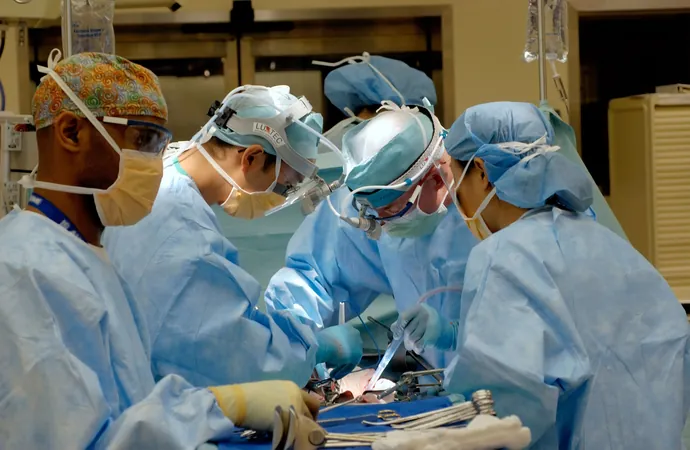
Revolutionary Breakthrough in Organ Transplant Rejection Prevention
2025-05-07
Author: Yu
A Game-Changer in Transplant Medicine!
In a groundbreaking study, researchers at Mass General Brigham have unveiled a significant breakthrough in preventing organ transplant rejection. While current treatments have mainly focused on suppressing T cells—key players in the adaptive immune system—this research shines a light on the often-overlooked innate immune system, our body's first line of defense that triggers early inflammation during transplantation.
Meet the Natural 'Brake' in Immunity
The study identifies a natural inhibitory receptor known as Siglec-E (SigE), along with its human counterparts, Siglec-7 and Siglec-9. This crucial mechanism acts as a 'brake' to prevent the overactivation of immune cells that can lead to organ rejection. When this protective mechanism is absent, inflammation escalates, resulting in quicker rejection in experimental models.
A Silver Lining for Transplant Patients
Notably, transplant patients with elevated levels of Siglec-7 and Siglec-9 demonstrated improved graft survival rates. This correlation highlights the potential of targeting this pathway for future therapeutic advancements. As Dr. Leonardo Riella, medical director of Kidney Transplantation at Massachusetts General Hospital notes, "Our long-standing emphasis on T cell regulation has overshadowed the critical role of the innate immune system. Harnessing these natural inhibitory pathways could revolutionize how we protect transplanted organs without endangering overall immune health."
Promising Research Ahead!
Led by Dr. Thiago J. Borges from the Center for Transplantation Sciences, the researchers utilized mouse models to explore the implications of SigE in heart, kidney, and skin transplants. Deficiencies in SigE resulted in heightened acute rejection, reinforcing the receptor's vital role. Moreover, biopsies from human transplant samples showed that higher receptor levels correlate with better allograft survival, suggesting that these findings could be pivotal for the future of human organ transplants.
Towards More Effective Treatments
This revolutionary discovery opens the door to next-generation therapies that can effectively target both branches of the immune system. With these advancements, we could see a future where transplant success rates soar, significantly reducing the reliance on lifelong immunosuppression. Dr. Riella emphasizes, "This breakthrough holds immense promise for achieving long-lasting transplant success and improving patients' quality of life!"




 Brasil (PT)
Brasil (PT)
 Canada (EN)
Canada (EN)
 Chile (ES)
Chile (ES)
 Česko (CS)
Česko (CS)
 대한민국 (KO)
대한민국 (KO)
 España (ES)
España (ES)
 France (FR)
France (FR)
 Hong Kong (EN)
Hong Kong (EN)
 Italia (IT)
Italia (IT)
 日本 (JA)
日本 (JA)
 Magyarország (HU)
Magyarország (HU)
 Norge (NO)
Norge (NO)
 Polska (PL)
Polska (PL)
 Schweiz (DE)
Schweiz (DE)
 Singapore (EN)
Singapore (EN)
 Sverige (SV)
Sverige (SV)
 Suomi (FI)
Suomi (FI)
 Türkiye (TR)
Türkiye (TR)
 الإمارات العربية المتحدة (AR)
الإمارات العربية المتحدة (AR)